Ibn Arabi

Introduction
In the realm of Islamic philosophy and mysticism, few names stand as tall as Ibn Arabi. His profound contributions to Sufism, theology, and philosophy have left an indelible mark on the intellectual landscape. This article delves into the life, works, and enduring legacy of Ibn Arabi, shedding light on his unique worldview and philosophical insights.
اسلامی فلسفہ اور تصوف کے دائرے میں ابن عربی کی طرح چند نام کھڑے ہیں۔ تصوف، الہیات اور فلسفہ میں ان کی گہرا شراکت نے فکری منظر نامے پر انمٹ نقوش چھوڑے ہیں۔ یہ مضمون ابن عربی کی زندگی، کاموں اور پائیدار میراث پر روشنی ڈالتا ہے، اس کے منفرد عالمی نظریہ اور فلسفیانہ بصیرت پر روشنی ڈالتا ہے۔
Early Life and Education
Born in Murcia, Spain in 1165, Ibn Arabi showed exceptional intellectual aptitude from an early age. His insatiable curiosity led him to delve into diverse fields, from jurisprudence to mysticism. Guided by influential scholars of his time, he embarked on a journey of knowledge that would shape his future philosophies.
مرسیا، سپین میں 1165 میں پیدا ہوئے، ابن عربی نے کم عمری سے ہی غیر معمولی دانشورانہ صلاحیت کا مظاہرہ کیا۔ اس کے ناقابل تسخیر تجسس نے اسے فقہ سے لے کر تصوف تک متنوع شعبوں میں تلاش کیا۔ اپنے وقت کے بااثر علماء کی رہنمائی میں، اس نے علم کے ایک ایسے سفر کا آغاز کیا جو اس کے مستقبل کے فلسفوں کو تشکیل دے گا۔
The Path of Sufism
Ibn Arabi’s journey took a definitive turn when he embraced Sufism—a mystical branch of Islam that seeks to attain spiritual closeness to the divine. His experiences and contemplations culminated in the concept of Wahdat al-Wujud, or the “Unity of Existence.” This profound idea posits that all of creation is an emanation of God’s essence, interconnected and inseparable.
بن عربی کے سفر نے ایک یقینی موڑ لیا جب اس نے تصوف کو قبول کیا جو کہ اسلام کی ایک صوفیانہ شاخ ہے جو الہی سے روحانی قربت حاصل کرنے کی کوشش کرتی ہے۔ ان کے تجربات اور غور و فکر کا اختتام وحدت الوجود یا “وجود کی وحدت” کے تصور پر ہوا۔ یہ گہرا خیال یہ ثابت کرتا ہے کہ تمام مخلوقات خدا کے جوہر کی تخلیق ہیں.
Works and Philosophies
Ibn Arabi’s literary legacy is a treasure trove of philosophical treatises, poetry, and metaphysical writings. His magnum opus, “Fusus al-Hikam,” explores the wisdom of various prophets and the underlying unity of their messages. In “Futuhat al-Makkiyah,” he presents a comprehensive vision of the cosmos, encompassing both the material and spiritual realms.
Ibn Arabi’s Most Inspiring Quotes
“My heart has become capable of every form: It is a pasture for gazelles and a monastery for Christian monks, and the pilgrim’s Ka’bah, and the tablets of the Torah, and the book of the Qur’an. I follow the religion of Love: whatever way Love’s camels take, that is my religion and my faith.”

IBN ARABI
“Do not attach yourself to any particular creed exclusively, so that you disbelieve in anything else.”

IBN ARABI
“He who knows his own self, knows God.”

IBN ARABI
“When I contemplated myself, I saw that I am the source and the origin of all that is. For I have caused existence to proceed from nonexistence; I am both the existent and the nonexistent.”

IBN ARABI
“Love is the emblem of eternity; it confounds all notion of time; effaces all memory of a beginning, all fear of an end.”

IBN ARABI
“You find yourself in love, and then you reach the Truth by abandoning your self.”

IBN ARABI
“The self is the mirror in which God contemplates Himself.”
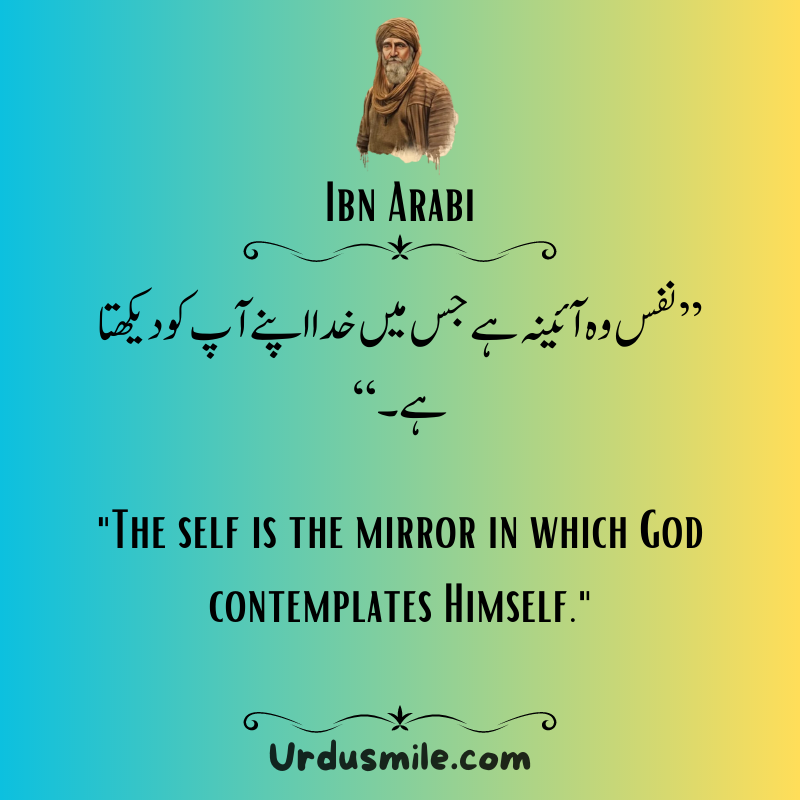
IBN ARABI
“God sleeps in the rock, dreams in the plant, stirs in the animal, and awakens in man.”
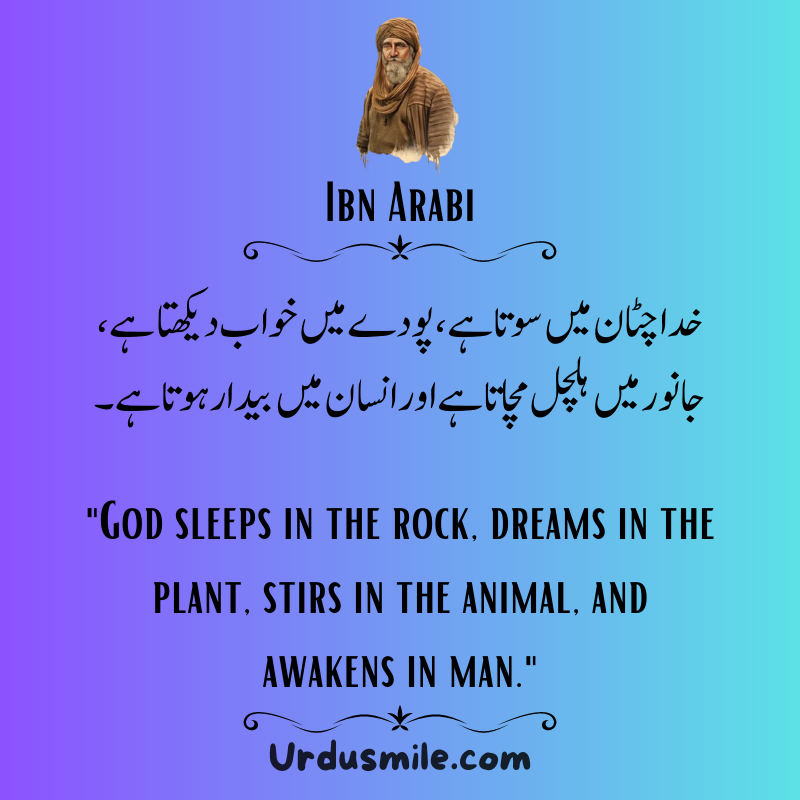
IBN ARABI
The mystic knows only the ecstasy of the act of journeying, and the intoxication of the arrival.”
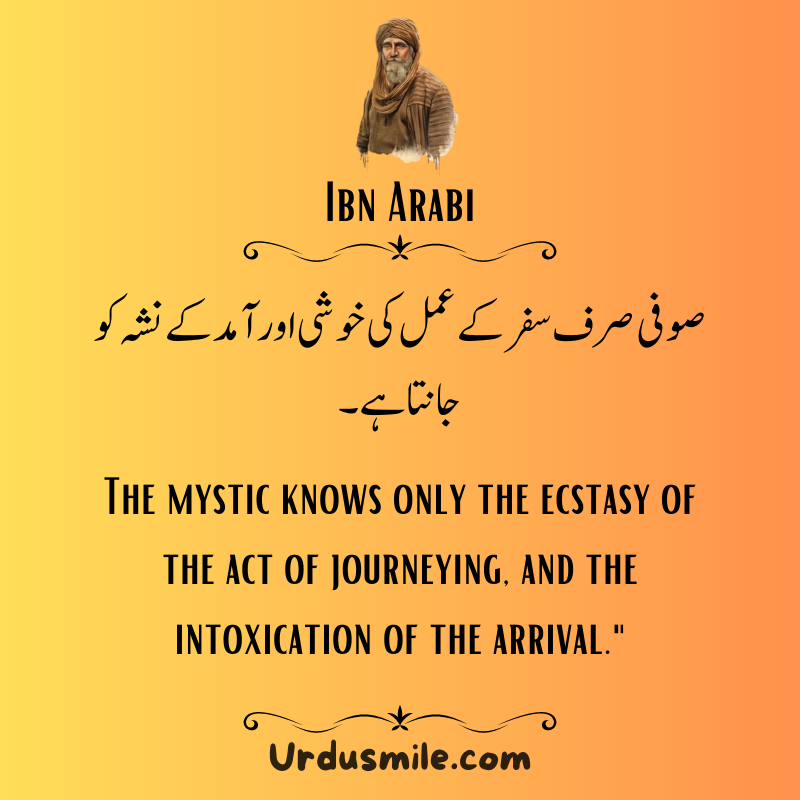
IBN ARABI
“He who is a knower of the truth is unaware of the path, for there is no path and nothing upon it. How can he have a path to something that is absent?”
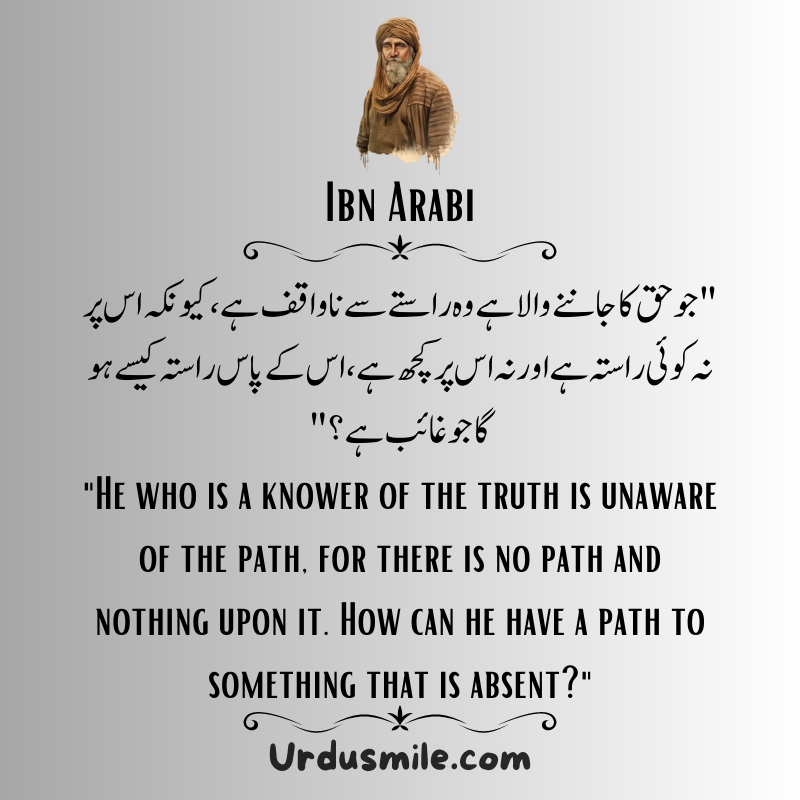
IBN ARABI
“The universe is a movement of the soul, which returns to its origin in God.”
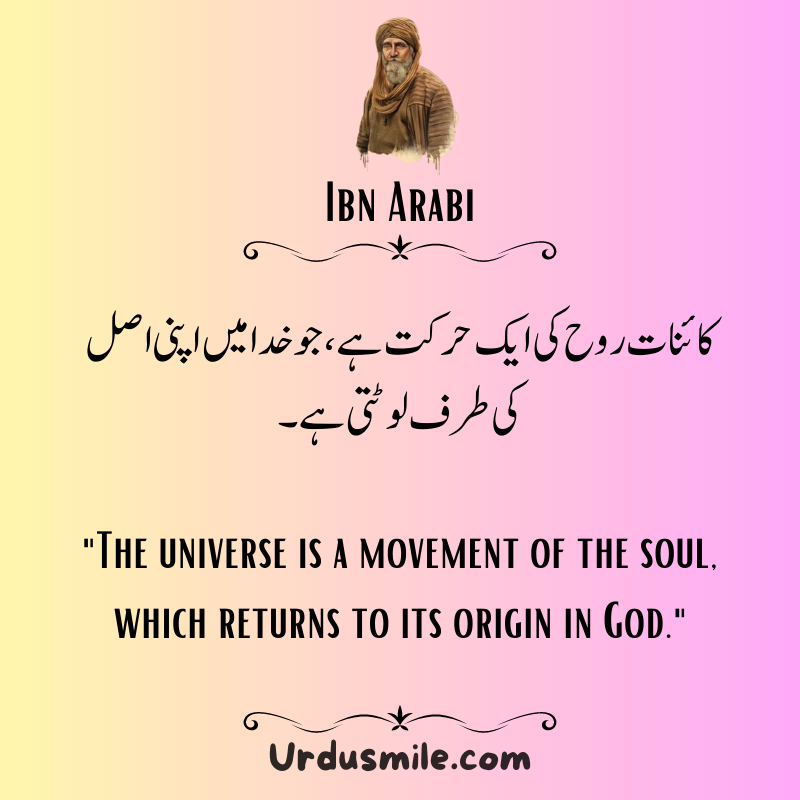
IBN ARABI
“Your existence is a mirror in which God beholds His own beauty.”
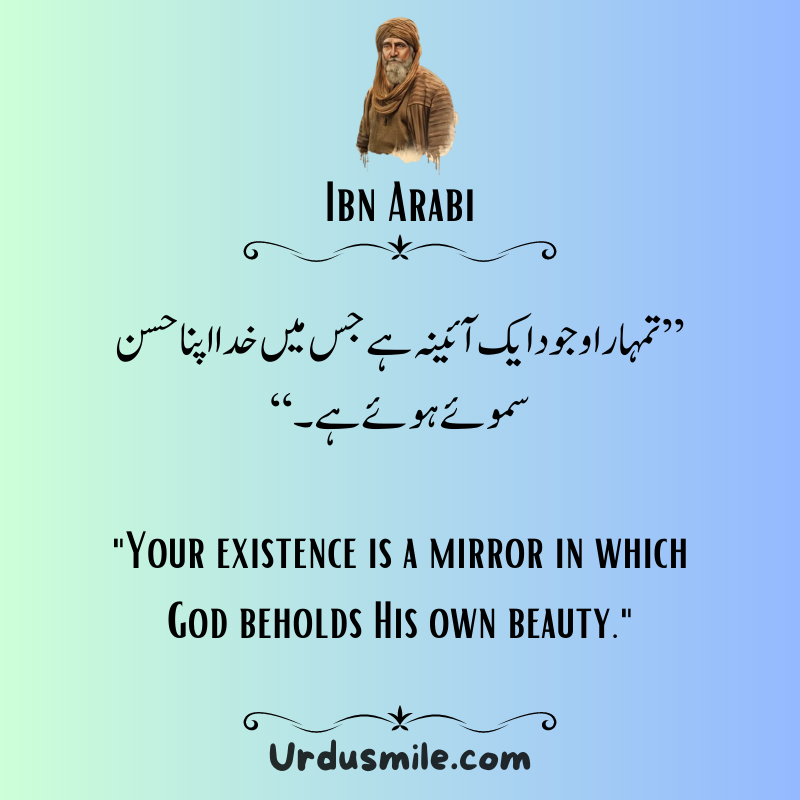
IBN ARABI
“All that is visible is merely a shadow of that which is hidden.”
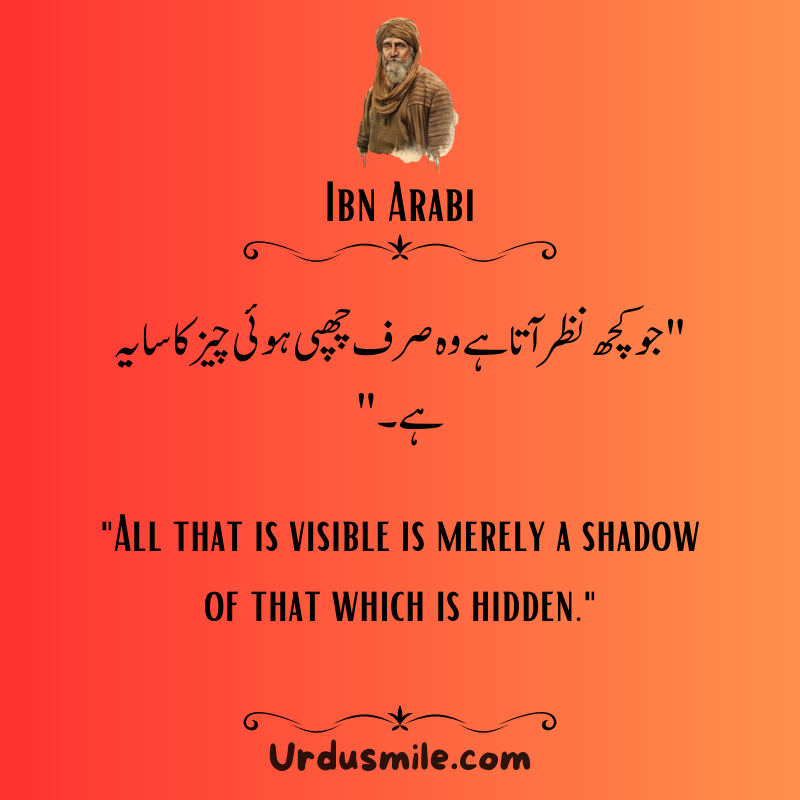
IBN ARABI
“Man is the secret of God and God is the secret of man.”
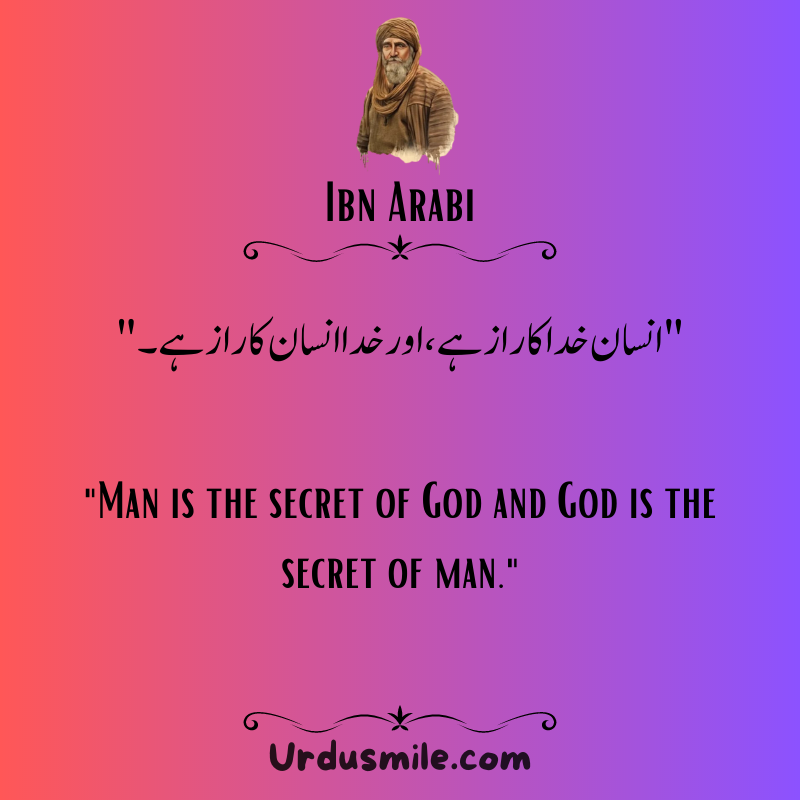
IBN ARABI
“Love is a stranger and speaks a strange language.”
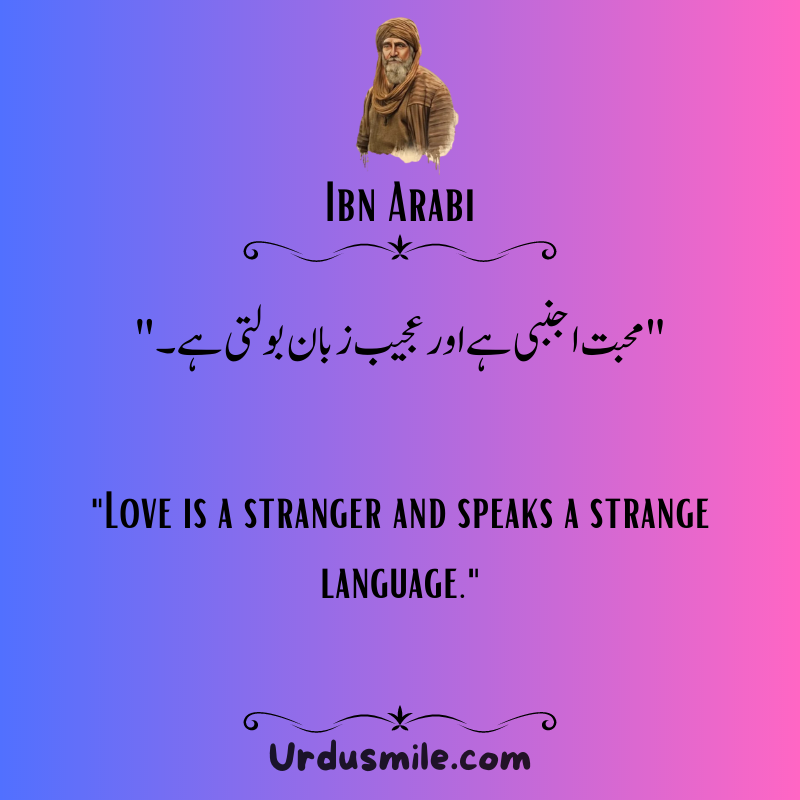
IBN ARABI
“Love came and became like blood in my body. It rushed through my veins and encircled my every vein.”
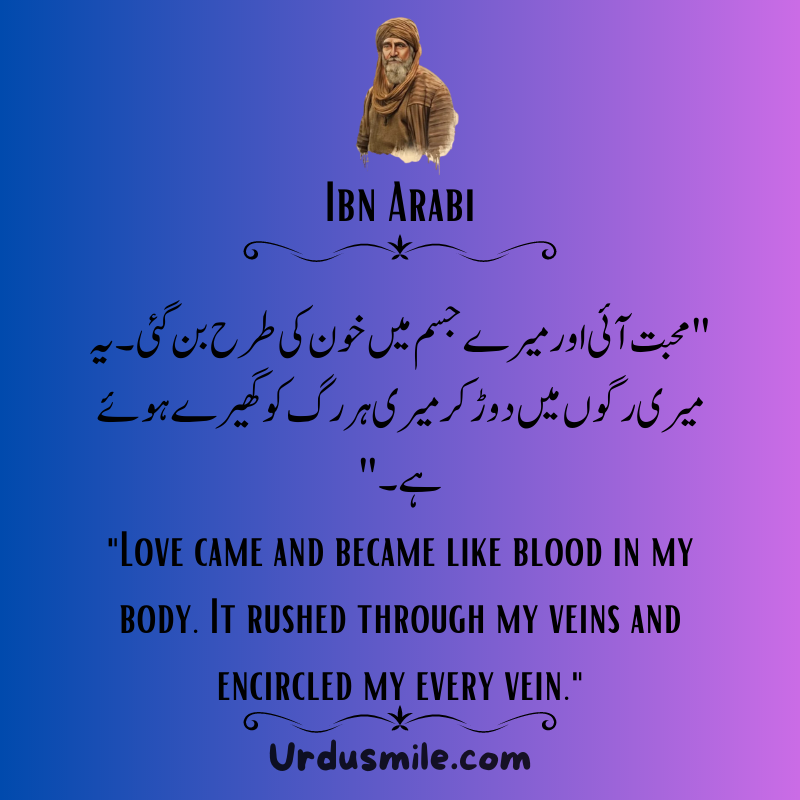
IBN ARABI
“He who does not know his own soul is ignorant of all things.”
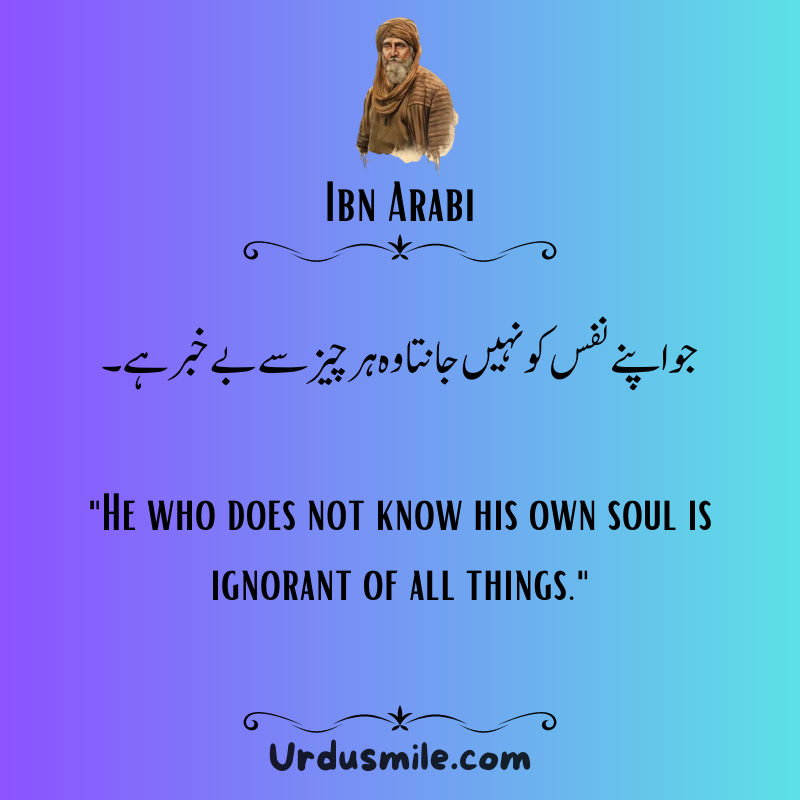
IBN ARABI
“Ignorance is an illusion; knowledge alone is real.”
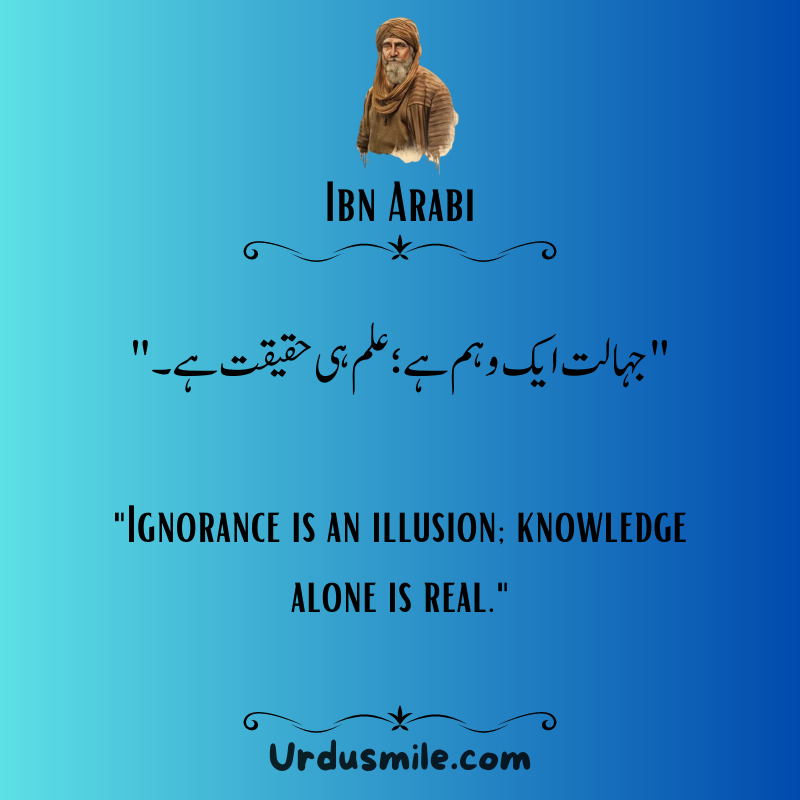
IBN ARABI
“I am a slave, and my heart is the sultan. Whichever way my heart turns, there is my face.”
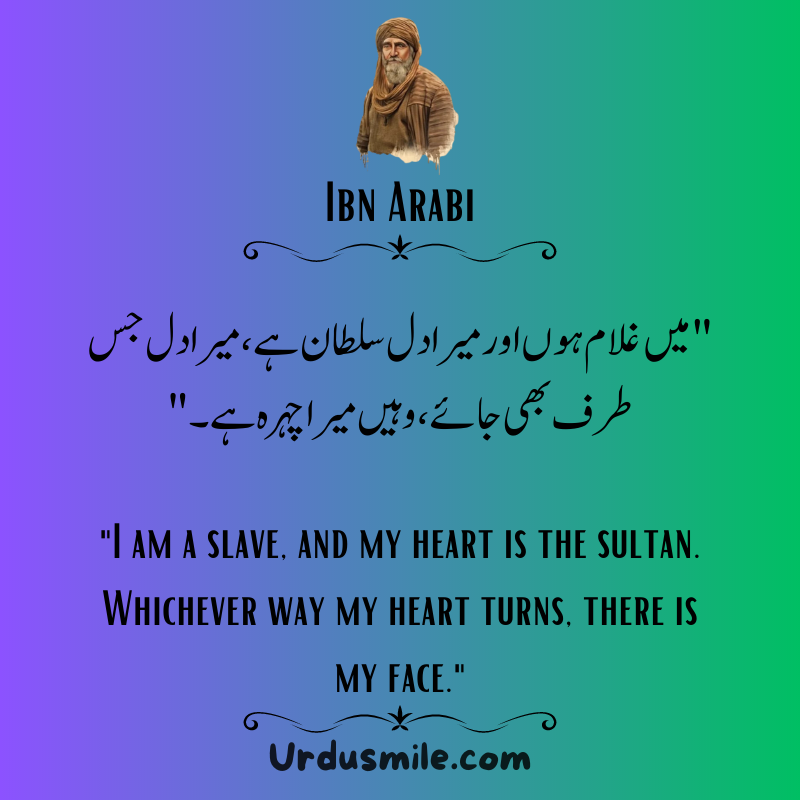
IBN ARABI
“Unity is beyond the veil of multiplicity.”
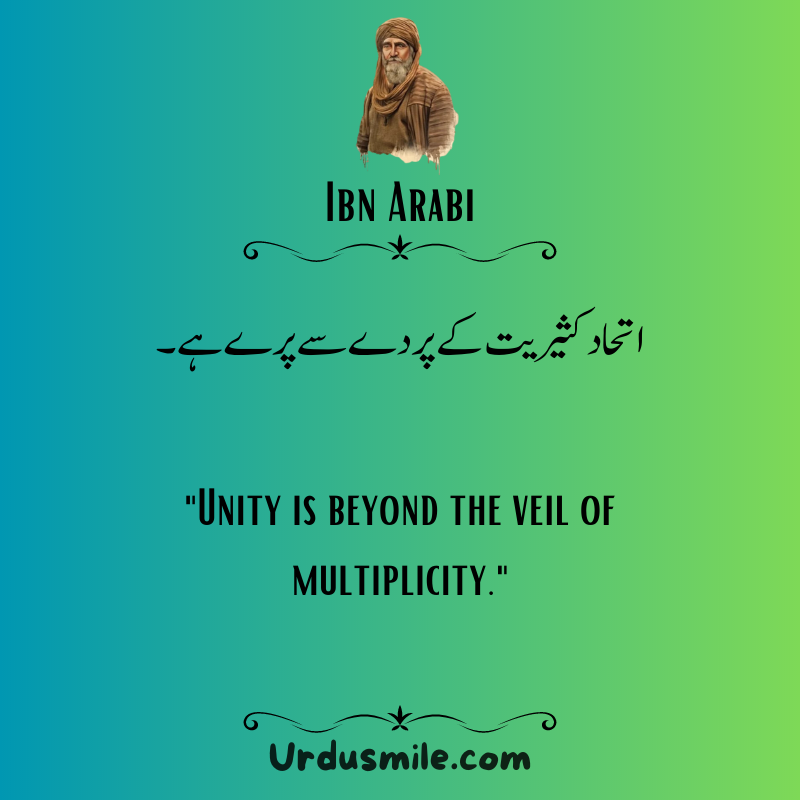
IBN ARABI
“Do not be a slave to others when Allah has created you free.”

IBN ARABI
“The truth is a mirror, which has fallen from the hands of God and broken. Everyone picks up a fragment and says that all the truth is in his piece.”
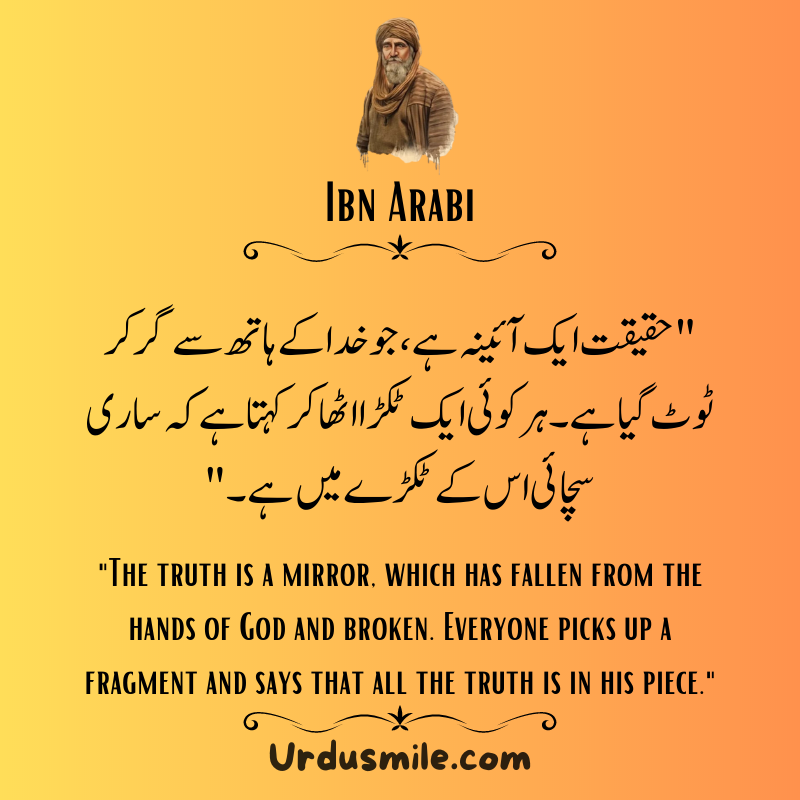
IBN ARABI
“The world is an imaginary spectacle, and only has existence in relation to God.”
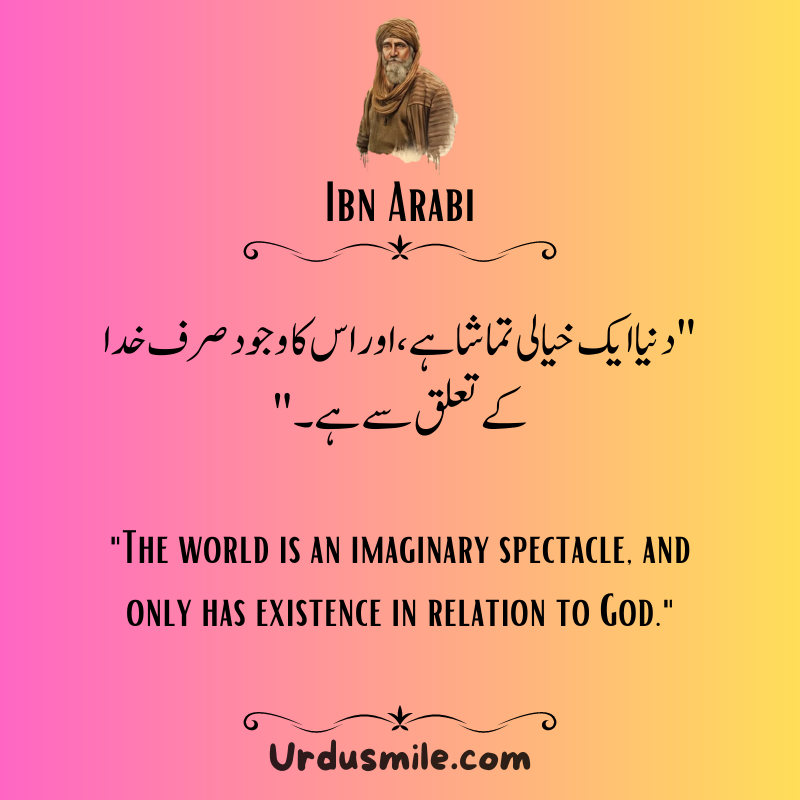
IBN ARABI
“Everything is perishing except His Face.”
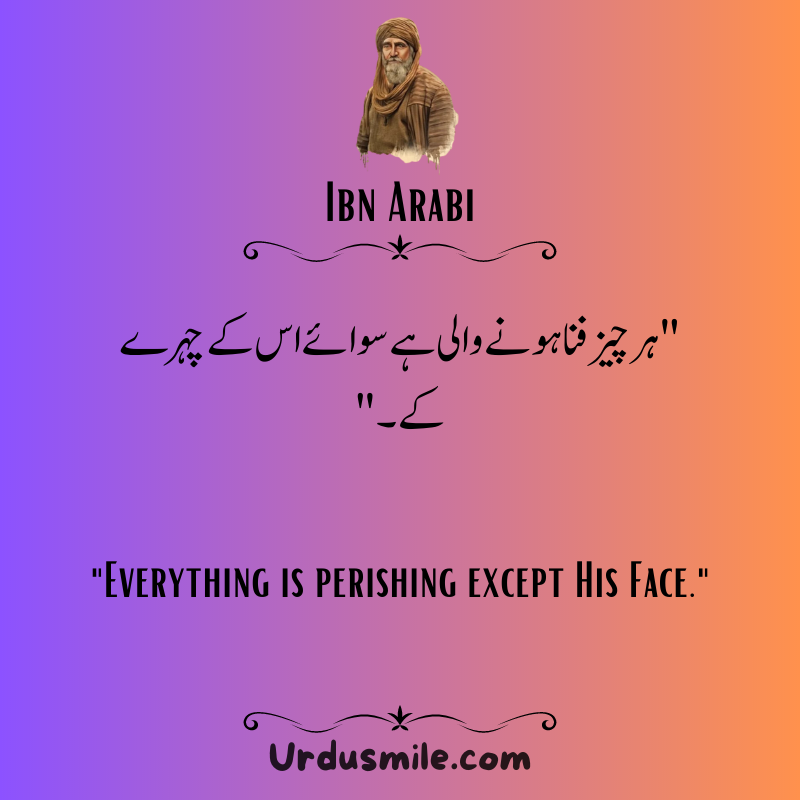
IBN ARABI
“My friend, the sufi is the one who has purified his soul from the impurities of selfness and filled it with the qualities of God.”
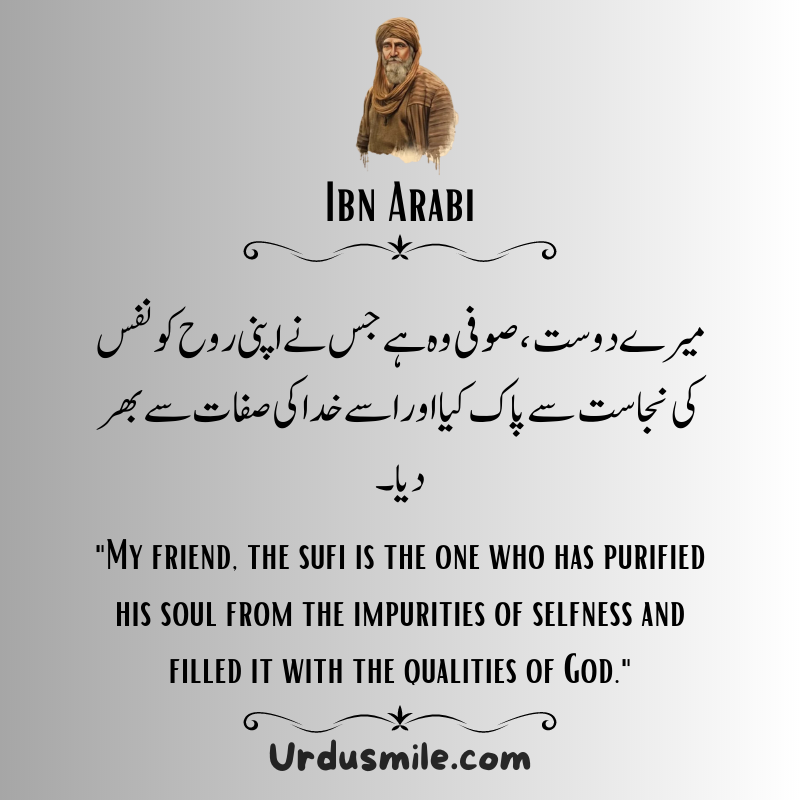
IBN ARABI
“Whoever knows himself knows his Lord.”
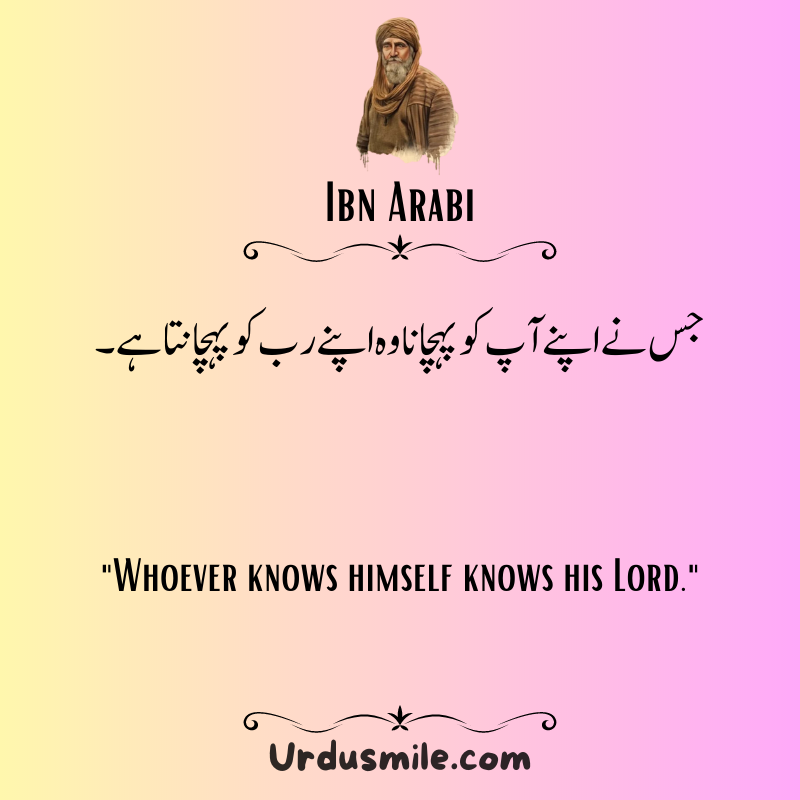
IBN ARABI
“If you desire to be pure, have firmness, and if you would possess wisdom, have humility.”
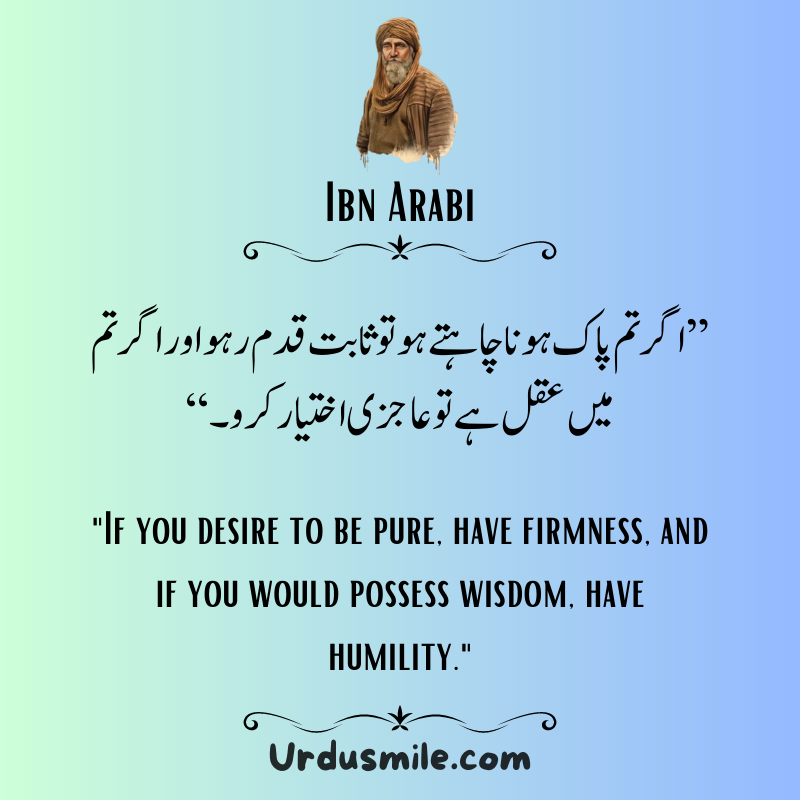
IBN ARABI
“He who knows his soul knows his Lord.”
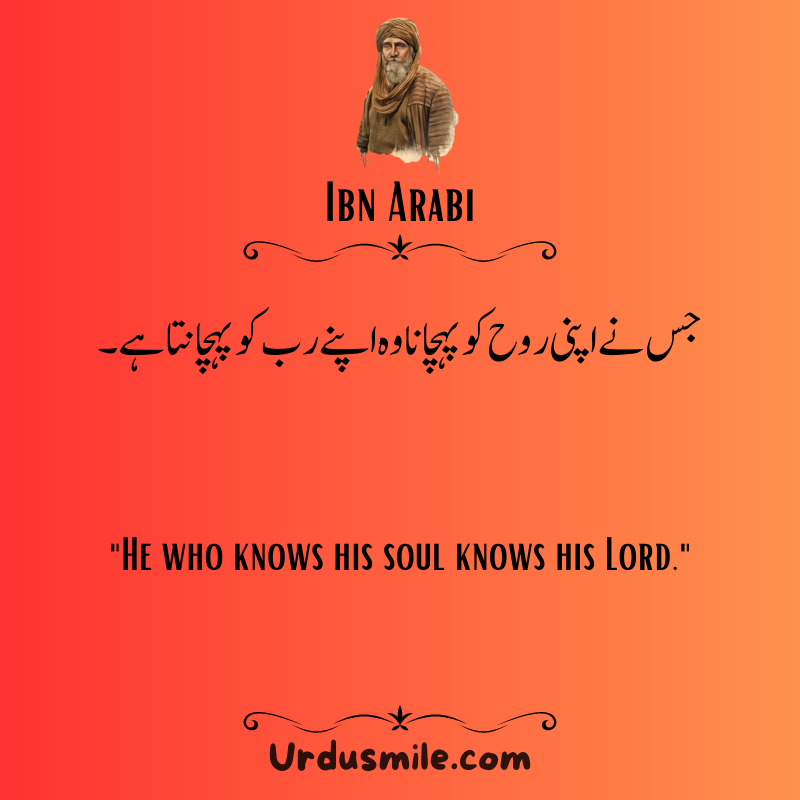
IBN ARABI
“Do not seek for other than the will of God, for the Will is swift and has no cause.”

IBN ARABI
“The inner reality of things can only be known through the light of God.”
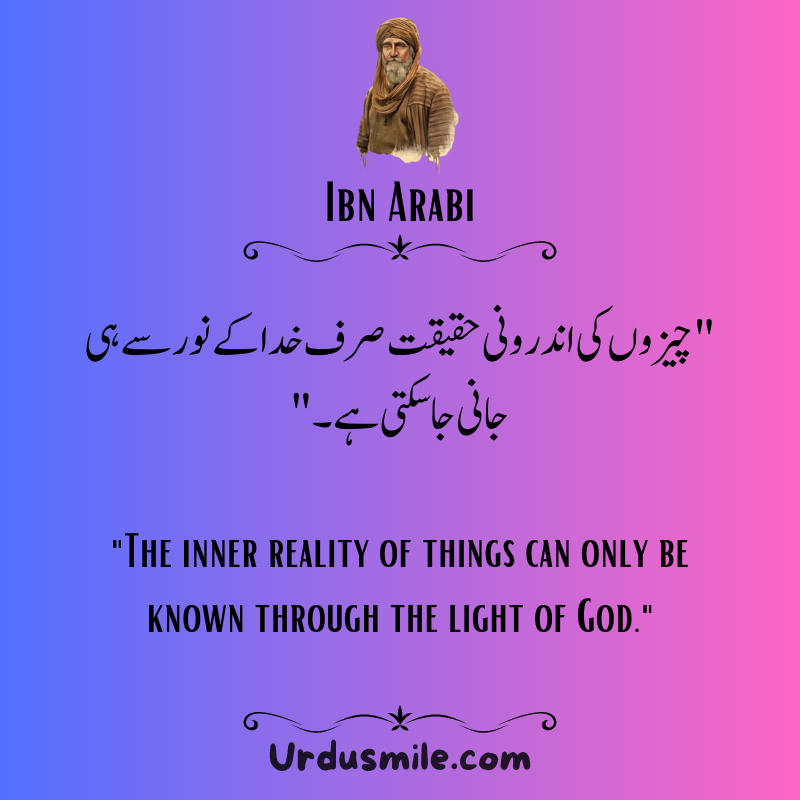
IBN ARABI
How can the heart travel to God, when it is chained by its desires?

IBN ARABI
The ignorant one does not see his ignorance as he basks in its darkness; nor does the knowledgeable one see his own knowledge, for he basks in its light

IBN ARABI
Beware of confining yourself to a particular belief and denying all else, for much good would elude you – indeed, the knowledge of reality would elude you. Be in yourself a matter for all forms of belief, for God is too vast and tremendous to be restricted to one belief rather than another.

IBN ARABI
I believe in the religion of Love, whatever direction its caravans may take, for Love is my religion and my faith.
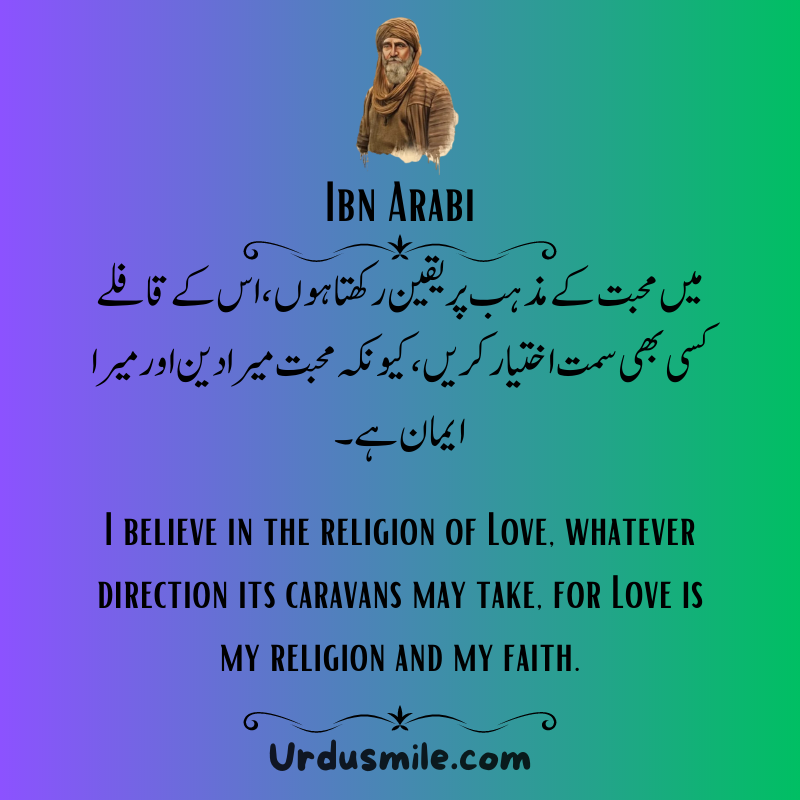
IBN ARABI
My heart can take on any form:
A meadow for gazelles, A cloister for monks, For the idols, sacred ground, Ka’ba for the circling pilgrim, The tables of the Torah, The scrolls of the Quran.
My creed is Love;

IBN ARABI
When you know yourself, your ‘I’ness vanishes and you know that you and Allah are one and the same.
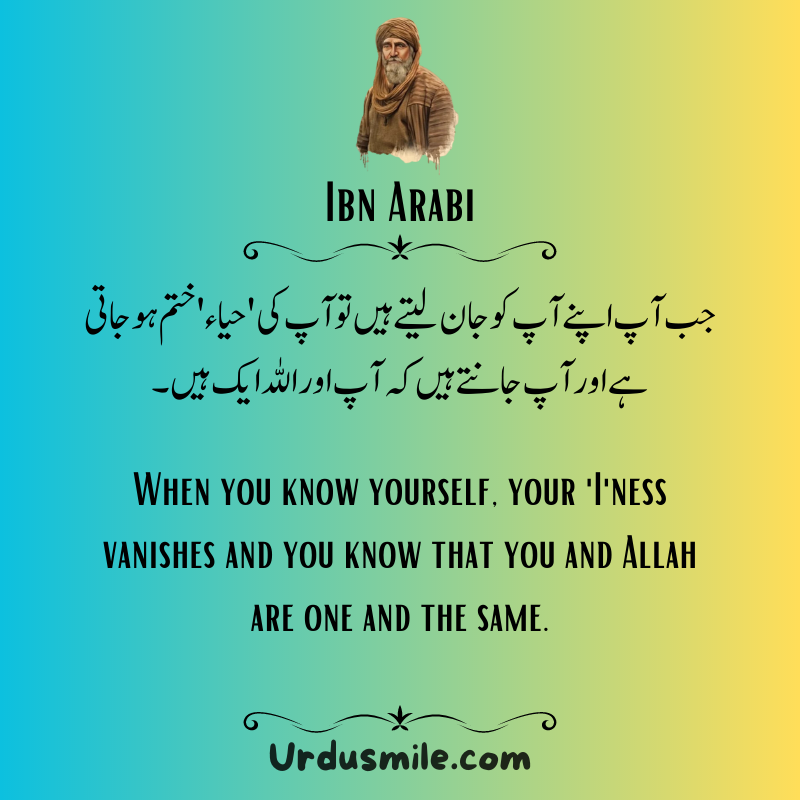
IBN ARABI
If you find it complicated to answer someone’s question, do not answer it, for his container is already full and does not have room for the answer

IBN ARABI
Whoever builds his faith exclusively on demonstrative proofs and deductive arguments, builds a faith on which it is impossible to rely. For he is affected by the negativities of constant objections. Certainty(al-yaqin) does not derive from the evidences of the mind but pours out from the depths of the heart.

IBN ARABI
I am in love with no other than myself, and my very separation is my union… I am my beloved and my lover; I am my knight and my maiden.

IBN ARABI
Your personal nature seeks its paradise.

IBN ARABI
Oh, Lord, nourish me not with love, but with the desire for love.

IBN ARABI
It is He who is revealed in every face, sought in every sign, gazed upon by every eye, worshipped in every object of worship, and pursued in the unseen and the visible. Not a single one of His creatures can fail to find Him in its primordial and original nature.

IBN ARABI
I follow the Way of Love,
and where Love’s caravan takes its path,
there is my religion, my faith.

IBN ARABI
You are My sight, so have faith. You are My Face, so veil yourself

IBN ARABI
While you are alive, your worldly self is like a collector of benefits from Allah’s bounties, which come to you from myriads of hands.

IBN ARABI
Each person is oriented toward a quest for his personal invisible guide, or . . . he entrusts himself to the collective, magisterial authority as the intermediary between himself and Revelation.

IBN ARABI
None but God is loved in the exist- ent things. It is He who is manifest within every beloved to the eye of every lover – and there is nothing in the existent realm that is not a lover

IBN ARABI
My creed is LOVE;
Wherever its caravan turns along the way,
That is my belief,
My faith.

IBN ARABI












Nice
THANKS